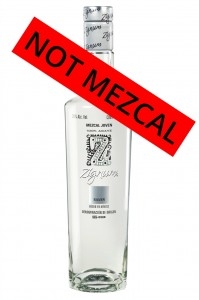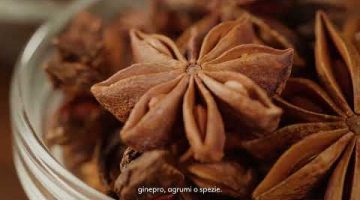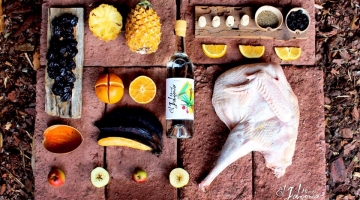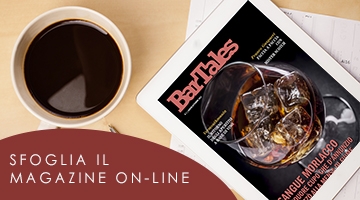MEZCAL PHD / NOVEMBER 14, 2013
I recently heard that Zignum claims to make a mezcal. Apparently, this rumor has spread far and wide and it landed at Bacardi’s worldwide global headquarters and they believed it too. So they bought it. Sadly, my friends, it is true.
Factually, Bacardi, one of the largest spirit companies in the world, has signed a deal to distribute Zignum, which is clearly not an acquisition of Zignum, though many expect this will lead to one in the future.
So who cares? I do. Everyone who drinks mezcal and shares a passion for it does too. And you should. Why? Here is the core of the reasoning:
- Zignum is not mezcal. “But it says it is mezcal on the pretty bottle.” I repeat, Zignum is not mezcal. It is made in a large industrial plant outside Oaxaca, security guards, no photography allowed, and all that. Not an earthen pit in sight. It is nothing like the mezcal we have come to love. It is an afront to the mezcal culture in every way. Even tequila is embarrassed!
- Bacardi will churn this non-mezcal mezcal through its distribution channels and Zignum will produce more of their swill.
- When Zignum produces more, they use more agave (though I am not sure it has actually been verified that they even use agave to make whatever this stuff is!). OK, it’s agave.
- Agave is a limited resource in Oaxaca and throughout Mexico. There is no annual crop. Eight years or so is about as quickly as it can take for an agave to reach maturity and be harvested, but it frequently is more like 10 to 12 years minimum.
When you have a limited resource, and some relevant portion of it is being utilized sub-optimally, you have a problem. First, there is not enough to go around. Second, that puts upward price pressure on the agave crop (and yes, this may potentially benefit those who only grow agave, but do not produce mezcal). Third, that means the mezcalero who buys agave for his beautiful mezcal, may no longer be able to afford to make his mezcal. Finally, in the extreme, all agave (if there is any left) is being used to make Zignum and that becomes the future of mezcal. Ahhhhhhhhhhhhhhhhh!!!!!!!!!!
No, it is not going to happen. But directionally, I hope you can see this is not a good way to go.
We all know mezcal is quickly gaining a foothold in the global spirits landscape, so it should be no surprise the large international spirit companies, Bacardi, Diageo, Beam, etc, are paying attention to this category. I know from the comments, traffic, emails, and subscribers to this blog the big guys are paying attention – that is great! But if they want to get involved with mezcal, they should be doing it in a responsible way - in a way that protects and respects the half-a-millennium heritage and culture of mezcal.
So Bacardi goes out and partners with a brand that respects nothing about mezcal, probably for the sole reason Bacardi believes industrialized production techniques are the only methods able to produce mezcal in large volumes. Would it be challenging for an artisanal producer who can produce perhaps 10,000 cases a year to get production to say 50,000 cases. Yes, it will be challenging, but it can be done. At least a handful of brands that I have had this discussion with, believe they can do it. And more importantly, they believe it can be done in a sustainable fashion. Did Bacardi look into any of this? Do they know anything about mezcal? I don’t know the answer to that, but I can guess that they probably don’t care – otherwise they would not have done this deal.
Having spoken to many brands, I know most are very environmentally aware, but I only know a few specifics as to what they are doing to help. For example, Ilegal has modified the pina roasting process to reduce the amount of wood used in the earthen pits. And Pierde Almas sponsored a reforestation by planting 1,000 baby tobalas in the wild this summer. If you are a brand or producer, please let me know what you are doing to address the sustainability of these valuable natural resources. I will be happy to highlight these endeavors in a future (and already planned) post on sustainability.
Is there anything good that can come out of Bacardi’s move with Zignum? Well, I guess I could argue it will raise awareness of the category. But then maybe someone buys a bottle and they think this is what mezcal is, they are not impressed, and they never buy it again.
I have a friend who vacationed in Mexico this summer (Craig, that is you). On the way out, he bought a bottle of Zignum at Duty Free. After he bought it, but before he tried it, he asked me if it was any good. Not wanting to prejudice him, I told him I had not tried it, so he should tell me what he thinks. He soon reported back that it was nothing like the fine mezcals he had enjoyed with me on numerous occasions – something like: “It was bland. Not smokey, and not very good.” Yep. In his case, he knew mezcal was a wonderful spirit from prior experience. But what about the next guy who initially dips his toe in the mezcal waters with Zignum? He may be permanently damaged and beyond reeducation!
Maybe one good thing that can come out of Bacardi’s move is an elevated dialogue and a new sense of urgency around the sustainability issue. This post was inspired by an FB discussion over the past few days on Bobby Heugel’s FB page. He is passionate about mezcal and a well-known Houston restaurateur and bar owner. You can see his FB discussion HERE if you want to read more about this important topic.
The more brands, producers, consumers, bartenders, importers, distributors, academics, COMERCAM, and even insignificant bloggers are discussing this issue, the more likely it becomes for the industry to coalesce around this topic and develop solutions. So let’s not be quiet. Bacardi and Zignum is just the tip of the sword.
That’s all for now. In the meantime, drink mezcal.
















